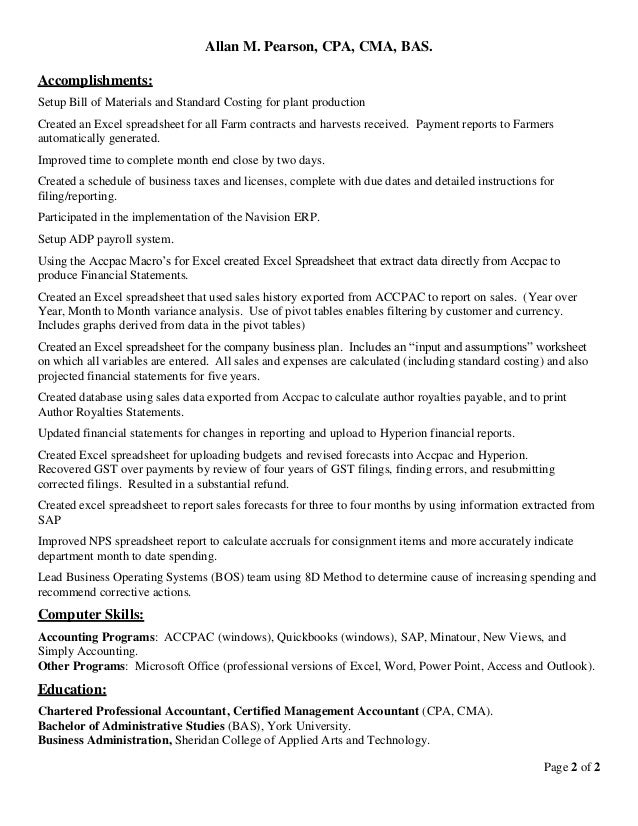ACCOUNTING FUNDAMENTALS SERIES. This new twelve-week online program, containing two courses, provides you with the essentials of the accounting field. Becoming a CPA. The CPA designation provides assurance to the public, the government, and the business community that CPA licensees have obtained the education and. AICPA Mission and History. Overview: Powering the success of global business, CPAs, CGMAs and specialty credentials by providing the most relevant. Established in 1957, Becker offers educational resources for professionals in the areas of accounting, finance, project management, and healthcare. Downers Grove, IL. My list of best CMA review course in 2017: pros and cons of Gleim, Hock, Wiley CMAexcel, IMA materials, Rigos, Exammatrix. Dokapon Kingdom Wii Iso Usa here. Pass the exam on 1st try!
CPA Requirements 2. State . Department of Labor's Bureau of Labor Statistics projects that by 2. U. S. Accountants across all specialties are expected to fill 1.
In any economic climate, thorough analysis, reporting, review and record maintenance offer the assurance of sound and profitable financial practices. SPONSORED LISTINGSFeatured Undergraduate Programs. Capella University - Online BS- Accounting and a BS- Accounting CPA Pathway. Maryville University - Online bachelor's degree in Accounting. Rasmussen College - Associate's and Bachelor's Degree Programs.
SNHU - Online AS in Accounting and BS in Accounting with the option to focus in Finance or Forensic Accounting. SPONSORED LISTINGSFeatured Graduate Programs. Here aspiring CPAs will find the steps to take in the licensing process for all 5. Each state and jurisdiction’s Board of Accountancy maintains autonomous licensing authority over the CPAs that engage clients within its boarders. Although the process for attaining CPA licensure in all states and jurisdictions consists of the same basic steps, each Board has its own specific requirements that must be met.
In all cases, becoming a CPA would involve fulfilling state or jurisdiction specific requirements and processes for the qualification, issuance, and maintenance of a CPA license. In accordance with the Uniform Accountancy Act, all state and jurisdiction Boards qualify CPA candidates for licensure within the general framework of the “Three Es” (education, exam, experience): Education – All CPA candidates must hold a bachelor’s degree, at minimum, and have no fewer than 1. Examination – All CPA candidates must achieve a passing score on the Uniform CPA Exam.
Certified Management Accountant (CMA) Top After you've become an accountant, you may choose to go on to earn a specialized certification, license, or other credential.
Experience – All CPA candidates must gain field experience under the supervision of a licensed CPA. In most states and jurisdictions, one year of supervised experience satisfies the requirement. The difference in education requirements between Boards has to do with how many credit hours are required in each of the core areas of ethics and law, accounting, and business. Although the Uniform CPA Exam is the same in all states and jurisdictions, the eligibility requirements for taking the exam are not. While some states allow candidates to take the exam after completing their standard 1. Some states also require a state- specific ethics exam in addition to the CPA Exam. Experience is a key component to qualifying for CPA licensure, and one that is upheld by all Boards of Accountancy.
Although one year of general supervised experience is the standard, most Boards maintain specific requirements for the number of hours spent performing audit and attestation work during this time. Each Board also has its own process in place for tracking and logging the requisite hours, which both the CPA candidate and the supervising CPA must adhere to. Even as all state and jurisdiction Boards of Accountancy move toward a greater level of uniformity, there are still many inconsistencies. Accounting. Edu. org serves as a detailed guide to those interested in learning the process and satisfying the requirements for achieving CPA licensure within their state or jurisdiction.

